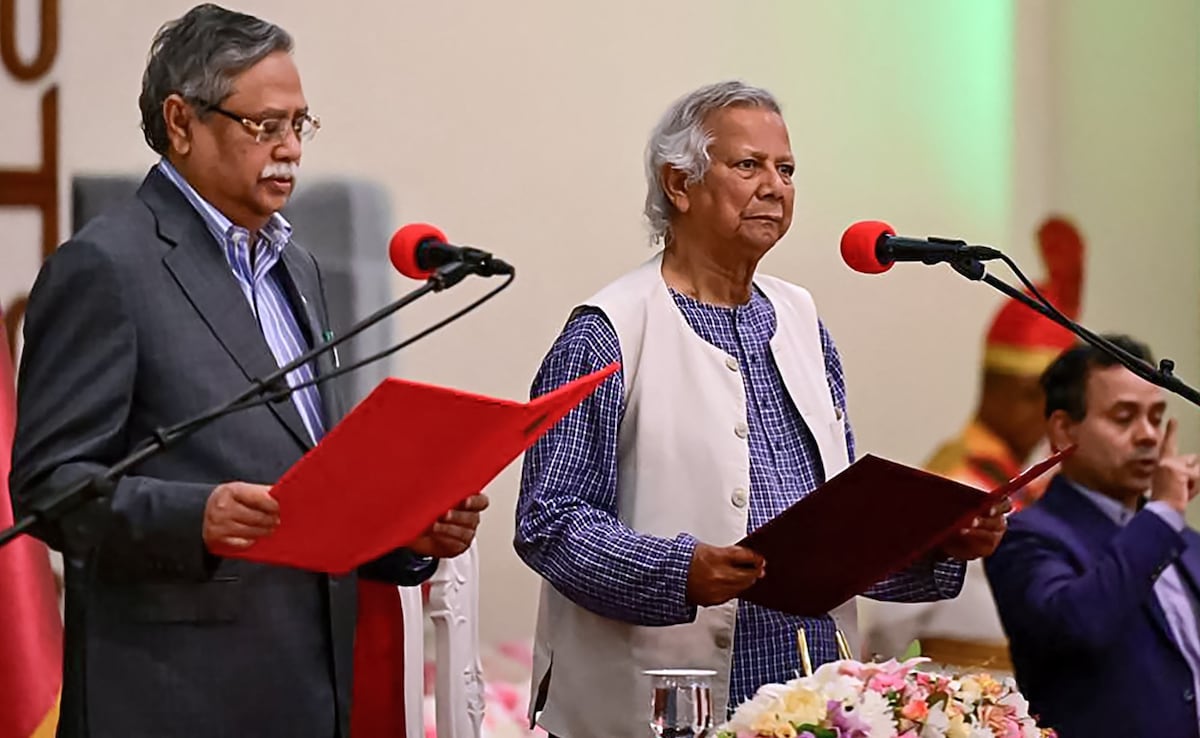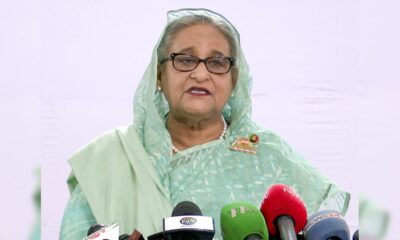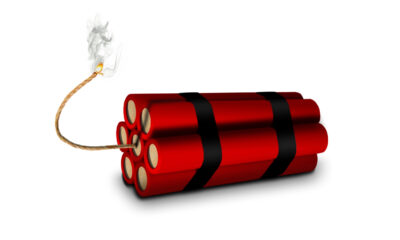Muhammad Yunus was sworn in as head of Bangladesh’s interim government on Thursday.
New Delhi:
Sajeeb Wazed Joy, son of former Bangladesh Prime Minister Sheikh Hasina, has claimed that the recent protests in Bangladesh were likely instigated by a foreign intelligence agency, specifically suspecting the involvement of the ISI.
Speaking to ANI, he said the unrest was caused by external forces and not domestic issues and criticized the way his mother’s statement was twisted to fuel the protests.
“I now firmly believe that this was instigated by a small group and most likely by a foreign intelligence service. I strongly suspect the ISI.
There was no reason to continue the protests because the quotas were not imposed by our government and were reinstated by a court ruling. Our government had lifted the quota around 2018 when the first quota protests took place,” he said.
He alleged that the protesters had distorted Sheikh Hasina’s statement on Razakars, which led to the escalation of the protests.
“When the protests started, they were peaceful. Our police provided security for the demonstrators. Then they recorded my mother’s statement saying that we don’t want Razakar’s families to get jobs.
They took that statement and twisted it to say that my mother said the protesters were Razakars. My mother never said that. But this was spread online. And then, in the middle of the night, a group – no one knows who did it – marched through Dhaka University chanting, “We are Razakars.” And that’s what happened. The other students, especially the Bangladesh Chhatra League, our student supporters and the pro-liberation students became angry.
They attacked the protesters, and that’s how the violence started,” he said, adding: “The police tried to stop the violence, and some police members used live ammunition, which they were not authorized to do. Our government has never ordered anyone to attack.
Our government has never ordered the police to use live ammunition. We immediately called our student leaders and said, ‘Stop the fighting.’ The fighting stopped. We immediately suspended the police officers who used excessive force.”
He also questioned the presence of weapons among the protesters and emphasized that his mother, Sheikh Hasina, chose to leave her residence to avoid a possible massacre, prioritizing the lives of students.
“They have increased the demand for the government’s resignation. And once they did, they started attacking the police with firearms. Where did these weapons enter Bangladesh from? How did the students get weapons? So these were not students. It was a mess. This was militancy designed to try to overthrow a democratically elected government,” he said.
“My mother left (even when) her security forces were heavily armed and prepared to guard the Prime Minister’s residence. But if the demonstrators had come in the hundreds, they would have been killed. It would have been a bloodbath. And not my mother. I want a massacre. That’s why she left,” he explained.
He added: “She left to protect the lives of the students.”
Wazed said the current interim government in Bangladesh, led by Nobel laureate Muhammad Yunus, was “unconstitutional.”
“We want a quick restoration of democracy. Right now, this government is completely unconstitutional. There is no provision for a select government elected by a small minority, because we have 170 million people in Bangladesh, and 20,000 to 50,000 protesters are just a small fraction. of the minority Nobody voted for this government. So it remains to be seen whether they can restore public order.
They have been in power for less than 24 hours,” he said.
“It is one thing to take power through a coup; it is another thing to govern. They don’t have the bandwidth of the people. Who is going to listen to them? At present, there are two major political parties in Bangladesh. No matter what happens. That’s what you want, if you want democracy with 170 million people… then we have 100 million followers. They did not vote for or support this government. So how are you going to govern without their support? Listen to this government. It is one thing to come to power, but it is another thing to see people following you,” he said.
He claimed that the interim government began making mistakes within 12 hours of taking office.
“In twelve hours they will start making mistakes. They have already announced that elections are not a priority. The priority is to challenge the previous government to reform the country. But no one gave them the mandate to reform. They do not have the mandate of the people of Bangladesh. So who’s going to support them?’ Waze said.
He said the Awami League has always protected minorities, pointing out that the last fifteen years have been the safest for minorities in Bangladesh. He added that the interim government has failed to keep minorities safe as they try to flee the country.
“In the history of Bangladesh, only one government has protected the minorities of Bangladesh from all militancy and violence. That was the Awami League. The past fifteen years have been the safest period in Bangladesh’s history for minorities and for Bangladesh itself. And it was. Will the unelected governments not have the support of almost the entire population of Bangladesh? minorities try to flee the country. I worry about them. “I want to do what I can to keep the minority safe, restore law and order in Bangladesh and bring back democracy,” he added.
Bangladesh is facing a volatile political situation with Sheikh Hasina resigning on August 5 after mounting protests. The protests broke out in early July amid demands for reform of the quota system that reserves civil service jobs for specific groups, including descendants of 1971 war veterans.
The unrest intensified after students opposed a new policy of allocating government jobs to descendants of freedom fighters. This led to violence, including attacks on state television headquarters and police booths in Dhaka.
(Except for the headline, this story has not been edited by NDTV staff and is published from a syndicated feed.)














